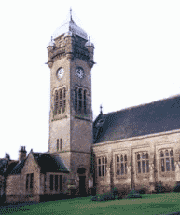


|
Apology is just the start - victims of care-home abuse deserve a full answer The Herald, 02/12/2004 IT IS difficult to envisage a graver I breach of trust than the abuse of a I child who has been placed in the I care of the state. The "sincere and full apology on behalf of the people of Scotland" from First Minister Jack McConnell yesterday deserves an unqualified welcome. Those who have not been betrayed and damaged in this way owe it to those who have been, to acknowledge their pain and heed their suggestions. Consistently, these victims tell us that a sincere public apology is central to the business of moving on. The value of a heartfelt apology has been widely recognised in recent years. Bill Clinton apologised to native North Americans. Australians have an annual "Sorry Day" when they try to make it up to the country's Aboriginal population. Yesterday's apology is the culmination of a process that began two years ago when a man in his thirties, who had grown up in the care of nuns in Aberdeen, petitioned the Scottish Parliament to establish the causes and extent of abuse in residential establishments over several decades. The parliamentary debate on this subject is testimony to the success of Scottish devolution in rendering democracy more accessible to individual members of the public. However, an apology can only begin to repair the damage. If not systematic, such abuse was certainly widespread. Some 300 members of the organisation In Care Abuse Survivors and nearly 1000 clients of one Glasgow lawyer, all allege that they were abused in care in cases going back more than 40 years. Many were in institutions run by charities such as Quarriers and Barnado's, the Church of Scotland and various Roman Catholic orders of nuns and brothers. However, in all cases the state had regulatory and supervisory functions. The most persistent question asked by the victims is "How could this have been allowed to happen to me?" They deserve the fullest possible answer. Will the independent tribunal promised yesterday go far enough? The request to information commissioner Kevin Dunion, to ensure the maximum availability of material from official records, is welcome. However, much depends on the powers of the investigator and how widely he or she interprets the brief. These citizens were abandoned as children and have felt abandoned as adults. Some have been accused of lying, others of gold digging. If the proposed inquiry does nothing more than spell out the regulatory frameworks and monitoring systems in place in children's homes at the time, that is inadequate. In a society where children had no voice and where those who abused them hid under invisibility cloaks of public trust, corruption thrived. Of course, lessons have been learned and much has changed, but without a full public inquiry can we be certain that the best interests of children in care today are being met? It is good for society to recognise it has made mistakes but it is not enough. |